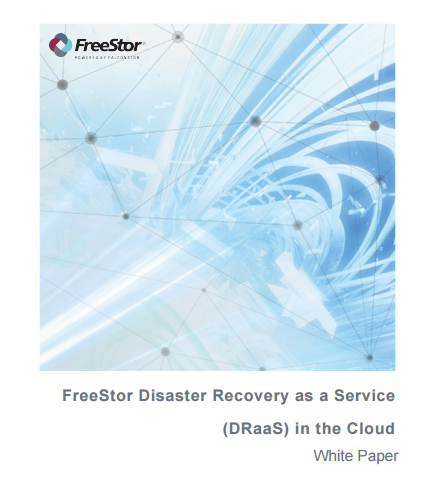
PROCESSING. PLEASE WAIT...


White Paper: FalconStor
Disaster Recovery as a Service (DRaaS) is a smart solution when you have a limited budget. With DRaaS, you can virtualize your data and keep a current copy of your data in the cloud – on which ever cloud service provider you choose.
This whitepaper is intended as a guideline for customers planning to deploy a DRaaS cloud solution. It provides a brief overview of latest technology, concepts, and simple disaster recovery cloud solution examples.
Potential challenging aspects of moving to a cloud deployment
The biggest cloud service providers
On-premise AWS storage gateway with cloud-based S3 storage
Deploy an FSS server from the Azure marketplace
This gives you the power to seamlessly migrate, recover, and protect data in the cloud without tying your business to specific hardware, networks, or protocols
By: FalconStor
Cinder is a Block Storage service for OpenStack. It’s designed to present storage resources to end users that can be consumed by the OpenStack Compute Project (Nova). Cinder is used to centrally manage a service that provisions storage in the form of block devices knows as Cinder volumes. When the Cinder driver is installed in an OpenStack environment, volumes created on the OpenStack Horizon dashboard with volume type FSS will automatically show as Vdev’s on the GUI. Key takeaways from this whitepaper: Three basic services and a dedicated underlying database of Cinder Potential use cases of persistent block storage In OpenStack The market adoption of Cinder Openstack Cinder integration
By: FalconStor
Having a business continuity disaster recovery (BCDR) plan is critical to an organization’s success and it is up to you to choose the best DR solution to meet your business needs. Creating a good recovery plan begins with defining recovery objectives and aligning the BCDR strategy with business requirements. A good BCDR plan identifies your recovery objectives and then aligns your strategy to your business requirements. This white paper discusses some disaster recovery (DR) strategies and challenges that an organization might face while creating a business continuity and disaster recovery plan. Elements of a good DR plan Strategies the customers can use to meet ROI recovery requirements Two types of recovery: manual on-premise and automated Recovery in the Cloud with Amazon Web Services (AWS)


 2025 All Rights Reserved | by: www.ciowhitepapersreview.com
2025 All Rights Reserved | by: www.ciowhitepapersreview.com